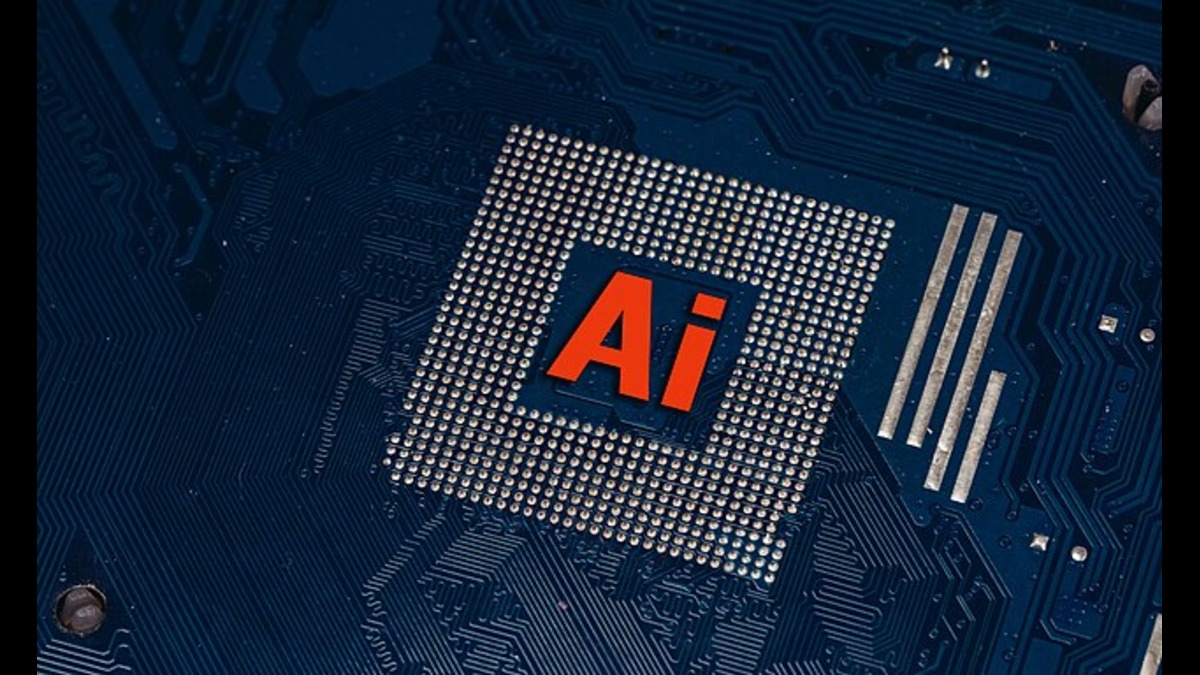Quarterly earnings of top six artificial intelligence (AI) companies have dropped by as much as 20% and are expected to drop further read more
)
AI offers significant potential for improving energy efficiency, advancing predictive modelling, and guiding evidence-based policies to address climate change impacts. Image Credit: Wikimedia Commons
As technology companies fail to produce good profits, investors are no longer star-struck by the promises of artificial intelligence (AI) and want actual results.
The change in the mood also comes at a time when fund managers are warning of the hype around the AI. Recently, Goldman Sachs and Elliot Management have warned investors that the AI is overhyped and that promised AI applications would neither be cost-effective and nor likely to address real-world problems.
Of the seven top technology companies dubbed ‘Magnificent Seven’ riding on the AI bandwagon, six have reported declining quarterly earnings. Nvidia, whose stocks fell Friday, will report the earnings later this month.
In this quarter, the six companies’ earnings growth slowed to 30 per cent, which was down from 50 per cent in the prior period, according to Bloomberg.
The financial news agency reported that analysts expect the decline to worsen and the figure could fall to 17 per cent in the third quarter.
In recent weeks, following the poor show, the stocks of Microsoft, Amazon, and Alphabet have tanked. On Friday, Nvidia’s stocks also fell up to 6 per cent.
Show me the results, say investors
Amid poor show regarding the AI’s promises, the investors are entering a phases where they want to see results, said Adam Sarhan to Bloomberg.
“Investors are entering a ‘show me’ phase, seeking concrete evidence of AI’s impact on revenue and productivity. This is causing some scepticism and volatility,” said Adam Sarhan, Founder and CEO of 50 Park Investments.
The financial news agency reported that investors are already shifting from large, trusted stocks to smaller, riskier parts of the market to lessen their exposure to the ‘Big Tech’.
Sarhan said that the AI trade is not over but investors are recalibrating their expectations and are demanding results.
“Instead, it suggests a recalibration of expectations. We’re seeing a shift from pure hype to a demand for tangible results,” said Sarhan.
The warnings over AI bubble
In a recent note to clients, hedge fund Elliot Management said the Nvidia, which has seen 600 per cent growth since 2023, is a “bubble” driven by “overhyped” AI technology, according to Financial Times.
The Elliot in the note said many of the promised AI applications are “never going to be cost-efficient, are never going to actually work right, will take up too much energy, or will prove to be untrustworthy”.
The note concluded that the AI had not yet provided “value commensurate with the hype”.
In a report in June, Jim Covello of Goldman Sachs (GS) said that even as the companies across the world are on their way to invest $1 trillion on AI, there is little to show in terms of results. He said that to justify $1 spending, the AI would need to solve a $1 trillion problem — which does not appear to be the case.
“We estimate that the AI infrastructure buildout will cost over $1tn in the next several years alone, which includes spending on data centers, utilities, and applications. So, the crucial question is: What $1tn problem will AI solve? Replacing low wage jobs with tremendously costly technology is basically the polar opposite of the prior technology transitions I’ve witnessed in my thirty years of closely following the tech industry,” said Covello, the Head of Global Equity Research at GS.
Rejecting the comparison of AI’s rally with the internet boom of the 1990s and 2000s, Covello said the internet and internet 2.0 are solving real-world problems and bringing down the cost of services — such as Amazon selling cheaper books and Uber arranging cheaper cars through technological interventions. That does not seem to the case with AI that’s more expensive than the applications in place today.
“While the question of whether AI technology will ever deliver on the promise many people are excited about today is certainly debatable, the less debatable point is that AI technology is exceptionally expensive, and to justify those costs, the technology must be able to solve complex problems, which it isn’t designed to do,” said Covello.

 1 month ago
22
1 month ago
22
)
)
)
)
)
)
)
)
)
)
)
)
)
)
)
)
)
)
)
)
)
)
)
)
 English (US) ·
English (US) ·